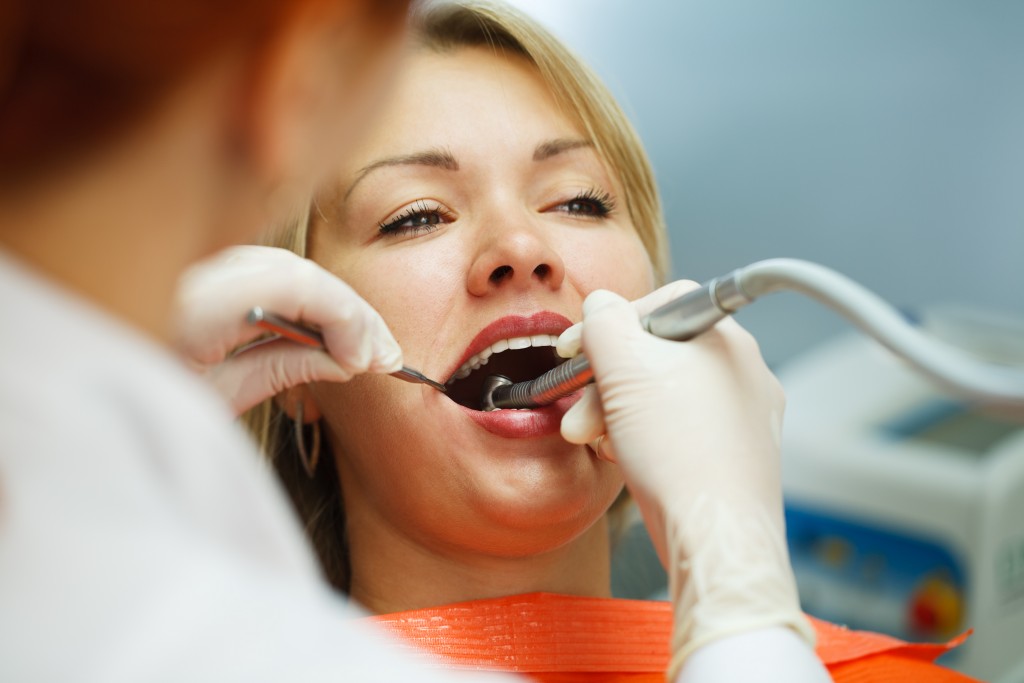It’s a typical day at the office, and you’re chewing on some hard chips from your pantry. As you munch on them, you feel a throbbing pain from one of your teeth, as if it was being dislodged and cracked by a jackhammer.
After a long day at work, you treat yourself with a pint of ice cream. But as soon as you place a scoop of ice cream on your mouth, you experience sharp, throbbing pain on the same tooth. Now you’re wondering why this is happening. Is it an infection, a mere toothache, or just sensitive teeth? You haven’t visited your dentist in a long while since you’re confident that your teeth are in good condition. But now that you’re in dire need of dental attention, you might have to reconsider going back.
Take the time to know the dental information and attention that you might need. What are the symptoms that we need to look out for? Here are some of the telltale signs that you’ll need to visit your medical professional for much-needed treatment.
Amplified Pain
Having long periods of pain can distract you from your daily tasks, and they can eventually lead to a drop in your productivity. Nobody wants that to happen in the office, especially yourself.
If the pain persists for a long time, you can always take over-the-counter pain relievers to numb the pain until you can get the opportunity to go to your dentist. However, don’t take too long before deciding to place that necessary dental appointment.
Sensitive to Temperature Change
The pain that you feel on your affected tooth could range from dull pain that feels like it’s being hammered on or a sharp pain like there’s a needle being stuck inside your gums. Either way, both can be caused by fluctuations in the temperature. Contrary to what most people think, cold drinks and ice cream won’t numb the nerves of your affected tooth and can lead to even more excruciating bouts of pain.
If this type of pain lingers in your tooth longer as days go by, you might need a root canal. It’s important not to delay your appointment with a periodontist if you plan on saving your affected tooth.
Harder to Chew
Other than making your meal more of a chore instead of something that should be enjoyed, an infected tooth can also restrict what you can eat. If your tooth is chipped or infected, small bits of food might be able to get into the cavity. It forces you to chew with only one side of your mouth, which isn’t good for your other teeth as well.
Red and Sensitive Gums
Another telltale sign that you most people can see is sensitive gums. The swelling of your gums might fluctuate at times, and it might seem fine for a while, right before becoming red again after a few hours. If you’re eating chips, crunchy food, or just about any type of food that has a hard texture, your gums can bleed if it’s too sensitive.
Usually, swelling is caused by acidic residue from dead tissue cells that might accelerate decay in your teeth. However, that does not necessarily point towards a root canal infection since it could be caused by an abscess that can be quite common at times. In some cases, these bumps can cause the contamination of your tooth as the pus can accelerate bacterial growth.
 Loose Tooth
Loose Tooth
Usually, if a tooth is loose, the infection might have rooted in a deeper part of your teeth. Notably, you won’t be able to feel any excruciating pain since the nerves might have decayed. Don’t worry; your tooth can still be saved with a root canal treatment.
Constantly Visit Your Periodontist
If you’re experiencing any of these symptoms, a visit to your periodontist won’t hurt. While it’s alright to look up the signs of why your teeth are aching, it’s still recommended that you leave the diagnosis to medically-certified professionals like periodontists. Getting an extensive check-up with them will get you to the root of the problem in no time.
There’s a common misconception that people only need to go to dental clinics when they need to have their teeth operated and treated. In reality, constant visits to your dentist are the best way of keeping your teeth healthy and strong.
Now that you know what the symptoms of common teeth problems are, good dental hygiene should be observed at all times to mitigate any chances of tooth damage.

 Loose Tooth
Loose Tooth